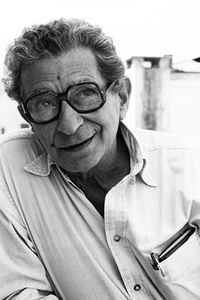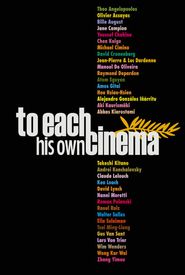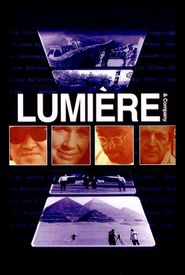Youssef Chahine, a highly acclaimed Egyptian film director, was born in the cosmopolitan city of Alexandria, Egypt in the year 1926. His educational odyssey commenced at a friars' school, where he laid the groundwork for his future academic pursuits, cultivating a solid foundation that would serve him well in the years to come. Subsequently, he transitioned to Victoria College to pursue his high school certificate, marking a significant milestone in his educational journey.
Upon completing his high school education, Chahine embarked on a year-long sojourn at the University of Alexandria, where he further honed his skills and refined his knowledge, preparing himself for the next chapter in his life. This period of academic exploration and personal growth laid the foundation for his future success.
In a bold move, Chahine relocated to the United States, where he spent two formative years at the prestigious Pasadena Play House, delving into the world of film and dramatic arts. This transformative experience had a profound and lasting impact on his future endeavors, shaping his artistic vision and informing his approach to filmmaking.
The cinematic journey of Egyptian filmmaker Youssef Chahine was forever altered upon his return to Egypt, where he was fortunate enough to have cinematographer Alevise Orfanelli serve as a guiding light, introducing him to the captivating world of film. This serendipitous encounter ultimately led to Chahine's cinematic debut, the 1950 release of Baba Amin, a film that would set the stage for a career replete with accolades and milestones.
The following year, Chahine's sophomore effort, Son of the Nile, garnered widespread recognition, earning him an invitation to the prestigious Cannes Film Festival, a distinction that would foreshadow a long line of international accolades to come. Throughout his illustrious career, Chahine would go on to receive numerous honors, including the esteemed Golden Tanit award at the Carthage Festival in 1970, a testament to his unwavering dedication to his craft.
One of the most groundbreaking and innovative films of his oeuvre was Le moineau, a 1973 production that marked a significant milestone in the history of Egyptian cinema, as it became the first-ever co-production between Egypt and Algeria, a collaboration that would pave the way for future international collaborations and cement Chahine's status as a true visionary in the world of film.
The esteemed filmmaker Chahine boasts a remarkable filmography, which prominently features an autobiographical trilogy. This cinematic odyssey commenced with the 1979 release of "Alexandria...", a masterpiece that garnered a prestigious Silver Bear at the Berlin Film Festival. The trilogy subsequently continued with "Hadduta Masriya" in 1982 and concluded with "Alexandria: Again and Forever" in 1989.
In the same calendar year, the renowned filmmaker, Chahine, embarked on a long-held ambition to create a cinematic masterpiece, The Emigrant, which drew inspiration from the ancient biblical narrative of Joseph, the son of Jacob. Following a prolonged period of meticulous preparation, Chahine's vision finally took shape in 1994, as he brought his cherished project to life.
Years later, in 1997, Chahine's remarkable career continued to unfold as he was honored with the distinction of presenting his film, Destiny, within the esteemed Hors Competition category at the prestigious Cannes Film Festival. This marked his 46th invitation to the renowned event, a testament to his enduring influence and reputation within the film industry.




































